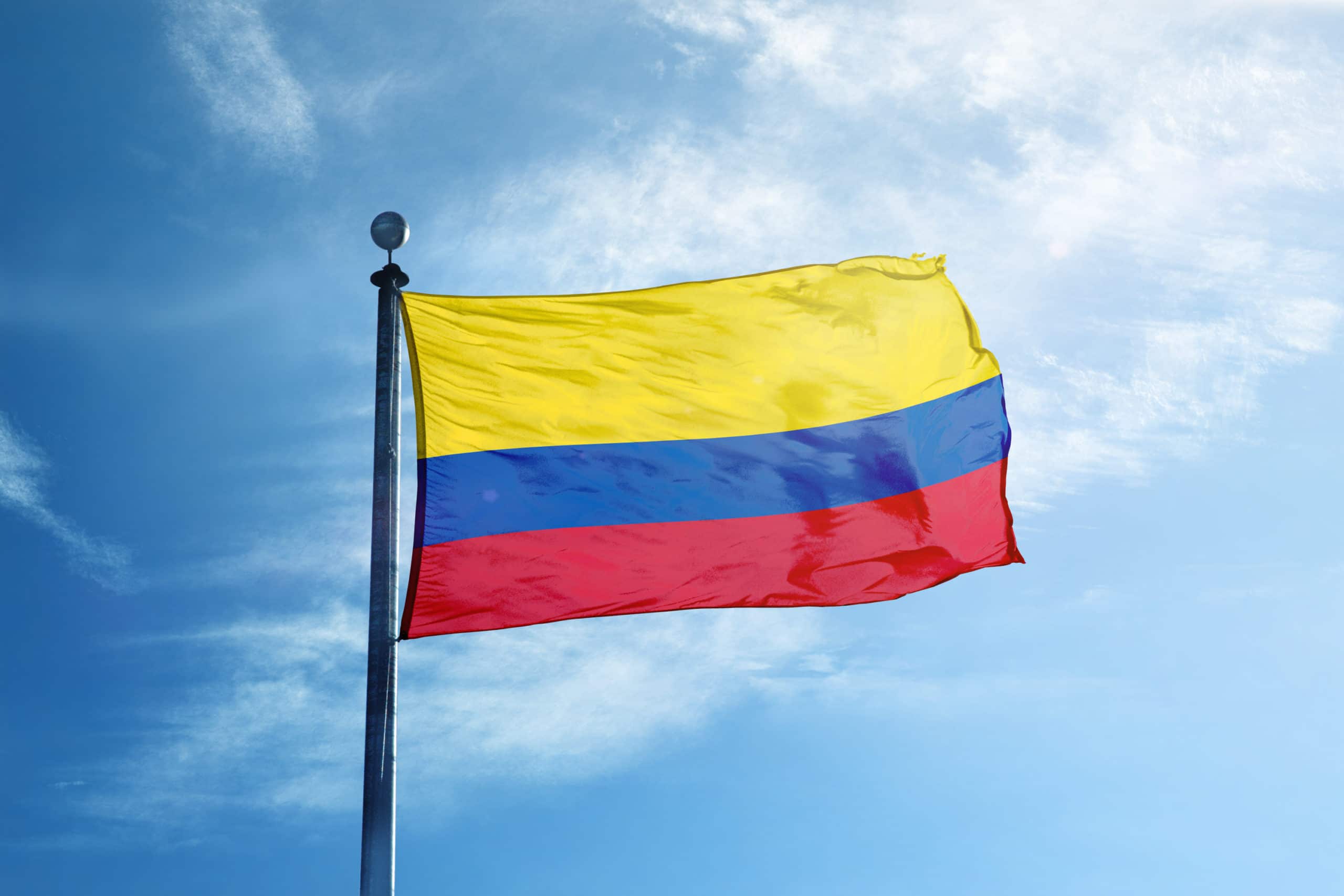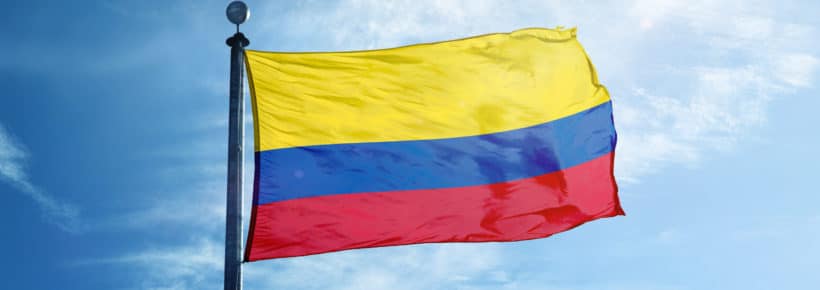Colombia’s Assault on Human Dignity

Today I have deeply discouraging news to report out of South America. On Monday, February 21, the Constitutional Court of Colombia issued a 5-4 arbitrary and unconstitutional decision that abortion is to be allowed, without restriction, up through 24 weeks of pregnancy.
In a press release, the Constitutional Court stated that abortion “will only be punishable when it is carried out after the twenty-fourth (24) week of pregnancy and, in any case, this time limit will not apply to the three cases established in ruling C-355 of 2006.”
That prior 2006 ruling permitted abortion in cases of rape, fetal abnormality, or when the life of the mother was threatened, if certified as necessary by a doctor. The new ruling makes clear that in these three cases no gestational limits will apply. That is, innocent unborn children can legally be aborted up to birth in such cases.
The Court has ordered Congress to implement policies to remove “any obstacle to the exercise of sexual and reproductive rights that are recognized in this ruling.”
In remarks after the decision, local pro-life leader Jesús Magaña told ACI Prensa that the Court tried to go “halfway” between completely decriminalizing abortion without restriction, and protecting unborn human life. However, he noted, “There is no middle ground between letting one live or killing.” A law allowing abortion up to six months is “savagery,” he said.
On the day that the decision was scheduled to be handed down, pro-life activists held a “Silence of the Innocents” sit-in outside the Court. They placed hundreds of small coffins, representing dead unborn children, on the sidewalk. Alas, that visual display represents only a fraction of the lives that will be lost as a result of this court decision.

International Pressure
The lawsuit that led to the court decision in Colombia was brought by the largest abortion clinic in Colombia.
However, as we have seen in other parts of the world, especially the developing nations, there is a cabal of powerful international pro-abortion organizations supporting, and often steering, the local effort. This includes organizations like Human Rights Watch, the United Nations through its United Nations Population Fund and the World Health Organization, Ipas, and the Center for Reproductive Rights.
In an article celebrating the court decision, Human Rights Watch called the decision “groundbreaking” for bringing Colombia “in line with international standards.” “Now the government should implement it by removing all barriers to accessing legal abortion,” it added.
Cristina Rosero, a lawyer for the Center for Reproductive Rights, welcomed the decision as a “historic step.” The New York-based Center had filed a lawsuit in 2020 to have the Colombian Constitutional Court consider liberalizing the abortion law.
The primary strategy being utilized by abortion advocates is to go through the courts to coerce a nation to approve abortion. Another strategy is to partner with like-minded people in a specific country, and target abortion-favorable judges, legislators, and officials to manipulate and coerce the government into approving abortion.
These legal efforts are supported by savvy, poll-tested propaganda that focuses on the most heart-rending “hard cases”, completely eliminating any mention of the unborn child. More often than not this propaganda, which is spread far and wide by liberal media, is based upon utterly fabricated “statistics” designed to give the impression that women are suffering desperately and need abortion to alleviate their suffering.
As I have so often warned over the years, there is a slippery slope when it comes to abortion law. This is why abortion activists begin the push for abortion legalization by focusing exclusively on the hard cases such as rape and incest. They know perfectly well that such cases make up a vanishingly small minority of abortions in countries that have legalized abortion. They also know, however, that allowing abortion in even a few cases quickly coarsens the conscience of a nation, accustoming its citizens to the idea that killing is an acceptable “solution” to certain problems and paving the way for more extreme laws.
That is what happened in Colombia. First the hard cases are legalized, and then those hard cases are used as the wedge to blow open the doors to full legalization. In Latin America this ceaseless drip, drip, drip of propaganda and pressure has in recent years led to the legalization of abortion in Argentina, Uruguay, and some states in Mexico. And now that pro-abortion forces have a foot-hold in Latin America, they are using those nations as the launchpad for pressure campaigns on neighboring countries, first focusing on the hard cases, and then promptly moving to pushing for full legalization.
Violating Colombia’s Constitution
The most remarkable thing about the recent court decision is that it so clearly violates the Colombian Constitution. Colombia’s Constitution explicitly guarantees protection of human life from its beginning: “The right to life is inviolable” (Political Constitution of Colombia, Article 11).
The majority of judges on the Constitutional Court violated their oaths of office and violated the authority of the national legislature by unlawfully making policy for the nation. Moreover, these actions betray Colombia’s culture of faith and respect for human life and family (Colombia is heavily Catholic). There is blood on the hands of those judges who abused their authority to unilaterally impose child-killing on a pro-life nation.

Cardinal Luis José Rueda, Archbishop of Bogotá and president of the National Conference of Catholic Bishops, lamented the decision. “The Colombian constitution says that life is the fundamental right of all citizens and the rest of the rights, which are defended in Colombia and throughout the world, start from there,” he said, according to Vida Nueva quoted in a Live Action article. “We are called to consistently respect life from gestation to natural death and for us believers, life, apart from being a fundamental right, is a gift from God.”
In a statement, the Colombian bishops conference noted, “One cannot hide or minimize the fact that any pregnancy involves the existence of another human being, different from the mother, helpless and vulnerable, who in turn has the right to be part of the human family.” Legalizing abortion, it added, “jeopardizes the very foundation of our social order and the rule of law. Direct abortion is an immoral act and a violent practice contrary to life.”
“This is a crime,” said pro-life congressman Jose Jaime Uscátegui in a video. “Why do Colombian citizens have to sit here silent … while five judges make a decision on behalf of 50 million Colombians?”
Pro-life leaders in Colombia have vowed to fight the decision. “[W]e have a pro-abortion court that’s not protecting the human rights of Colombians,” said Andrea Garzón, another Colombian pro-life leader, in an Instagram video rallying pro-lifers. “We need to keep on fighting, keep defending life. We are going to continue defending the rights of unborn children.”
“This is a lost battle, but we’re winning the war because Christ has already won it in heaven. We’re not stopping, we are here for both lives. We can’t allow babies to die. We have to continue.”
“We are going to save more and more babies,” she said.
This resolve in the face of seemingly insurmountable odds is what has allowed the pro-life movement all around the world to do so much to stem the tide of the abortion juggernaut. Latin American pro-life leaders are well aware that their continent is directly in the crosshairs of the international pro-abortion barrage and are mobilizing on a massive scale to resist.
All across the continent pro-abortion activists have taken the color green as their official color, while pro-life activists have adopted the color blue. In recent years there have been pro-life protests numbering in the many hundreds of thousands of people in countries such as Argentina. Aerial footage has shown massive oceans of blue, filling city squares and stretching for miles down city streets.
Latin American pro-life leaders are not about to allow their continent to become a killing field without putting up a fight. And indeed, perhaps the most remarkable thing is that despite the decades of pressure coming from massively powerful global organizations, Latin American countries have largely stood steadfast, proudly defending their pro-life heritage. Let us pray that they continue to stand firm in support of life, and that they may even show the rest of the world a path out of the culture of death that has taken so many countless innocent human lives.
I conclude with a prayer composed by HLI’s founder, Fr. Paul Marx, OSB:
O God, the Father and Creator of human life, help us never to become discouraged in defending the full breadth of that most precious gift, from the miracle of fertilization to the spiritual serenity of natural death.
Inspire us to remember that without You, we are powerless, and that what we do for the least, especially the helpless unborn dearest to You, we are actually doing for Your Son, who lives and works in and through us.
Protect us against the wiles and wickedness of the devil, a “murderer and a liar from the beginning.”
May the Holy Spirit enlighten us along the way! Amen.
Our Lady of Guadalupe, Patroness of the unborn, pray for us!

